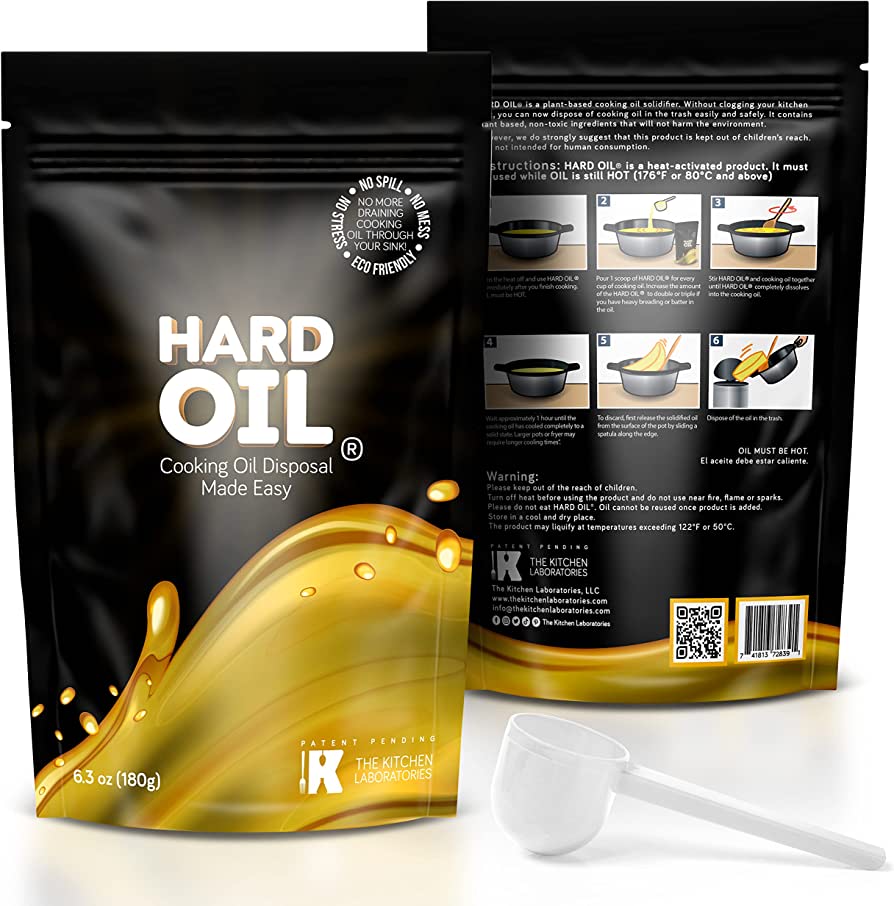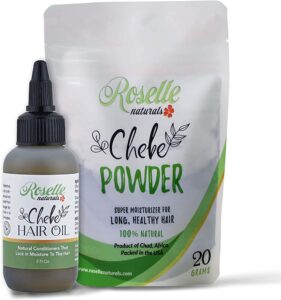Cooking oil should never be disposed of down the drain or toilet as it can clog pipes and contaminate waterways. Proper disposal of used cooking oil involves storing it in a sealable container and taking it to a recycling center or using it for other purposes such as composting or biodiesel production.
Cooking oil disposal is a crucial aspect of cooking that requires extra attention. The oil should never be thrown down the drain or toilet, as it can clog the pipes and lead to environmental pollution. The correct method of disposal of used cooking oil is to store it in a sealable container and dispose of it at a recycling center.
Alternatively, you can reuse the oil for other purposes such as composting or even making biodiesel. In this article, we will discuss the steps involved in appropriately disposing of used cooking oil.
:strip_icc()/how-to-dispose-of-used-cooking-oil-01-95dc9aa4112a4b38a3834413ea893070.jpg)
Credit: www.bhg.com
The Risks Of Improper Cooking Oil Disposal
Cooking Oil Disposal: The Risks Of Improper Disposal
When it comes to cooking oil, proper disposal is vital to avoid environmental pollution. Dumping oil in the wrong places could result in clogged drains, sewage backups, and environmental damage. In this blog post, we’ll look at the two most common ways to dispose of cooking oil, pouring oil down the drain and dumping oil in the garbage, and the consequences of improper disposal.
Pouring Oil Down The Drain
Many people pour cooking oil down the drain, which seems to be the easiest and most convenient way to get rid of it. However, this practice can cause significant problems in the long run. Here are some reasons why:
- Oil and grease poured down the drain can harden in the pipes, causing blockages and backups that can be expensive to repair.
- Oil and grease that enter the sewage system can also cause pollution in the waterways and harm aquatic life.
- Pouring oil down the drain is against the law in many areas and could result in hefty fines.
Dumping Oil In The Garbage
Another way to dispose of cooking oil is to dump it in the garbage. However, this method also has its disadvantages, especially if you’re not careful. Here are some reasons why:
- Pouring oil into the garbage bin can make a mess, and it could potentially leak onto the streets, causing accidents and pollution.
- Oil-soaked food waste in the garbage can attract pests, such as rats, mice, and insects, which can be a health hazard.
- When oil and grease mix with other trash, it can contaminate landfills and cause environmental pollution.
Consequences Of Improper Disposal
Improper disposal of cooking oil can have severe consequences, not only for yourself but also for the environment. Here are some reasons why it’s essential to dispose of cooking oil properly:
- Clogged drains can cause sewage backups and lead to expensive repairs.
- Environmental pollution can have long-term effects on the ecosystem and harm animals, plants, and even humans.
- Violating the law can result in hefty fines and tarnish your reputation in the community.
Disposing of cooking oil requires careful consideration to avoid environmental pollution, potential health hazards from pests, and hefty fines. Proper disposal methods such as recycling, donating, and composting are ideal for environmental preservation. So, the next time you’re faced with the task of getting rid of cooking oil, make sure you do it properly to avoid risks and help the environment.
The Right Way To Handle Cooking Oil Disposal
Cooking Oil Disposal
Cooking oil has become an essential part of our everyday cooking, but the process of disposing of it can be a challenge. It’s crucial to handle the disposal of cooking oil in the right way to avoid any damage to the environment or blockages to your plumbing system.
We’ll provide some tips on the proper way to handle cooking oil disposal.
Let The Oil Cool And Settle
It’s essential to let the cooking oil cool down before pouring it into a container. Avoid handling hot oil as it can cause severe burns. Cooling down oil also helps it settle at the bottom of the container, making it easier for you to pour out the oil without mixing any food particles that might be present.
Use A Sealable Container
After you’ve let the oil cool down, the next step is to use a sealable container for storage. Use cans with tight-fitting lids or glass jars with screw caps to avoid any leaks and spills that might result in obstruction of plumbing systems.
Ensure that the container you’re using is dry and free of any moisture to keep the oil fresh.
Recycle Or Donate
It’s essential to dispose of your used cooking oil responsibly. Pouring waste oil down the drain can clog pipes and cause significant damage to your city’s sewage system. Instead, consider recycling. You can check with your city council or local recycling center to see if they accept used cooking oil.
Some local organizations also accept donations of used cooking oil to create biofuels, which are environmentally friendly.
It’s essential to pay attention to your oil disposal method to ensure environmental sustainability and protect your plumbing systems. By following the simple steps mentioned above, you can easily and safely dispose of your used cooking oil.
Recycling Cooking Oil: A Comprehensive Guide
Cooking oil is a daily necessity for most households around the world. However, disposing of this oil can be challenging considering its detrimental impact on the environment. In this blog post, we will discuss the most comprehensive guide to recycling cooking oil.
This guide outlines the benefits of recycling cooking oil and also explores options for recycling through local programs and private centers.
Local Recycling Programs
Disposing of cooking oil can be hazardous to the environment if not handled properly. Fortunately, local communities across the united states offer recycling programs that make it convenient for individuals to dispose of cooking oil in a safe and eco-friendly manner.
Here are some key points to keep in mind:
- Local recycling programs typically accept used cooking oil, grease, and fat.
- Cooking oil recycling bins are often found at recycling centers, transfer stations, and public works yards.
- Residents are advised to bring their used cooking oil in sealed containers.
- Some local programs offer pickup services for used cooking oil.
Private Recycling Centers
In addition to local recycling programs, there are private companies that provide cooking oil recycling services. Here are some key points to keep in mind:
- Private recycling centers collect used cooking oil as a raw material to produce useful products like biofuel and soap.
- Some companies will pay you for your used cooking oil.
- Private recycling centers typically provide pickup services for used cooking oil.
Benefits Of Recycling Your Cooking Oil
Recycling your used cooking oil can provide several benefits, including:
- Reducing clogs in your sewer system and environment.
- Reducing the amount of hazardous waste in landfills.
- Allowing used cooking oil to be transformed into biofuel.
- Providing a source of sustainable fuel and reducing our dependence on fossil fuels.
- Helping the environment by avoiding oil spills.
Recycling your cooking oil is crucial, as it impacts not only the environment but also our daily lives. By following the guidelines mentioned above, you can dispose of cooking oil in a safe and eco-friendly manner while also benefiting the environment.
Remember, making the right decision can be the difference between a clean and sustainable future for our planet.
How To Donate Your Cooking Oil To Animal Shelters
Finding Animal Shelters That Accept Donations
Donating your cooking oil to animal shelters not only helps with properly disposing of the oil but also supports animal welfare. Before donating, it is necessary to know which shelters accept cooking oil donations. Luckily, finding these shelters has become a lot easier with the help of the internet.
Here are some ways to locate animal shelters in your area that accept cooking oil donations:
- Search online for animal shelters in your area and check their websites to see if they accept oil donations.
- Contact local animal welfare organizations to enquire which shelters accept cooking oil donations.
- Check your local phone directory for animal shelters and call them to ask if they accept cooking oil donations.
Preparing Your Oil For Donation
Once you have located an animal shelter that accepts cooking oil donations, it is essential to prepare the oil properly before donating it. Follow these steps to prepare your oil for donation:
- Allow the oil to cool completely before handling it to prevent any burns or accidents.
- Pour the oil into a sealable, leak-proof container such as a plastic jug or bottle.
- Label the container as “used cooking oil for donation.”
- Store the container in a safe, cool, and dry area until it’s time to make your donation.
Benefits Of Donating Your Cooking Oil To Animal Shelters
Donating used cooking oil to animal shelters has several benefits. Not only does it support animal welfare, but it also contributes to environmental conservation. Here are some of the benefits of donating your oil to animal shelters:
- Animal shelters often use the donated oil to make biodiesel fuel for generators and vehicles, reducing their carbon footprints.
- Properly disposing of cooking oil is essential for environmental conservation as it can clog drainage systems or pollute water and soil.
- Donating oil to animal shelters saves them money as they no longer have to purchase new oil for their operations, enabling them to allocate their funds to other areas of need.
- Supporting animal shelters through donating cooking oil helps ensure the well-being of animals under their care, providing much-needed food supplies for them.
Donating cooking oil to animal shelters is an excellent way to support animal welfare while also assisting in environmental conservation. Be sure to prepare your oil properly and locate a shelter that accepts donations in your area to make a difference in your community.
Transforming Cooking Oil Into Soap
Cooking Oil Disposal: Transforming Cooking Oil Into Soap
If you’re concerned about properly disposing of cooking oil after cooking, transforming it into soap is one solution that benefits both the environment and your household. Here’s everything you need to know about the saponification process, as well as the simple steps to making your own soap from cooking oil and the benefits of turning your cooking oil into soap.
What Is Saponification?
Saponification is a chemical process that converts a fat or oil into soap. It occurs through a reaction between the fat or oil with sodium hydroxide, also known as lye, and water. The end result is soap and glycerin, which is a natural humectant that draws moisture to the skin.
Here are the key points to consider:
- The saponification process relies on a base, typically lye, to create soap.
- The chemical reaction breaks down fats and oils into soap and glycerin.
- The glycerin can be extracted and used in skincare products.
- The soap produced through saponification is mild and gentle, making it suitable even for sensitive skin.
How To Make Soap From Cooking Oil
Making soap from cooking oil is a simple and relatively inexpensive process that can be done using the following steps:
- Collect your used cooking oil and strain out any food particles or debris.
- Heat the oil in a pot over low heat until it reaches about 100 degrees fahrenheit.
- In a separate container, mix the lye with water according to the instructions provided, ensuring you protect your skin and eyes with protective gear.
- Slowly pour the lye mixture into the heated oil, stirring constantly until the mixture reaches trace, a point at which it thickens to the consistency of pudding.
- Pour the mixture into molds and allow it to harden for a day or two before unmolding.
- Cure the soap for a few weeks to ensure it is fully saponified before using it.
Here are the key points to consider:
- Saponification requires lye, water, and cooking oil to make soap.
- It’s essential to protect your skin and eyes since lye is caustic.
- The soap mixture should be stirred carefully to ensure it reaches trace.
- Once the mixture is poured into the molds, it needs a day or two to harden.
- To be fully saponified, you need to cure the soap by storing it for a few weeks.
Benefits Of Turning Your Cooking Oil Into Soap
There are several benefits to recycling your cooking oil into soap:
- It’s an environmentally friendly way of disposing of used cooking oil, rather than pouring it down the drain or discarding it.
- It’s a cost-effective method of producing your own soap, saving you money while reducing your environmental footprint.
- You have more control over the soap’s ingredients, ensuring the soap is free from harsh chemicals and fragrances.
- The resulting soap is gentle and moisturizing, making it ideal for daily use and for those with sensitive skin.
Here are the key points to consider:
- Recycling cooking oil into soap is eco-friendly and cost-effective.
- You can ensure the soap is free from harsh chemicals and fragrances.
- The soap is gentle and moisturizing, ideal for daily use and those with sensitive skin.
Turning your cooking oil into soap is a simple and practical solution for disposing of used cooking oil while also producing an eco-friendly and gentle household product.
Creative Ways To Reuse Your Cooking Oil
Cooking Oil Disposal: Creative Ways To Reuse Your Cooking Oil
Instead of pouring used cooking oil down the drain, there are several creative ways to reuse it. Here are some fantastic ideas:
Infusing Oil With Herbs
Infusing oil with herbs is an excellent way to enhance the flavour of your cooking. Here’s how:
- Pour your clean, used cooking oil into a glass jar.
- Add your favourite herb(s) to the jar. Rosemary, garlic, and thyme are all excellent options.
- Cover the jar with a cheese cloth or coffee filter secured with a rubber band.
- Store the jar in a cool, dry place for at least two weeks, shaking it occasionally.
- Once the oil has infused with the herbs, strain the mixture through a fine-mesh sieve or cheesecloth and store it in a clean jar with a lid.
Making Homemade Candles
You can easily create personalized candles for any occasion using your used cooking oil. Here’s how:
- Melt the used cooking oil in a pot over low heat.
- Add fragrant essential oils and stir together.
- Place a pre-waxed wick in a clean glass jar, then pour in the melted oil mixture.
- Place a popsicle stick across the top of the jar to keep the wick centered.
- Allow the candle to cool and harden before use.
Fun Craft Ideas
Cooking oil can also be used for fun crafts that are educational for children, here are some ideas:
- Use leftover oil to make paper look antiqued. Brush some oil on paper and let it dry, leaving beautiful marks that add personality to the paper.
- Used vegetable oil can be used to lubricate sticking-doors, hinges, and other things around your home due to its slippery nature.
- Compost the cooking oil to enrich the soil and feed your garden.
There is no need to dispose of your used cooking oil. You can use it for all sorts of creative purposes, from adding flavour to cooking to crafting with kids. Give it a try and see what unique ways you can reuse your cooking oil.
How To Clean Up Cooking Oil Spills
Cooking Oil Disposal: How To Clean Up Cooking Oil Spills
We’ve all been there, accidentally spilling cooking oil while preparing meals resulting in a greasy and slippery mess. Not only is it unsightly, but it can also be dangerous if not cleaned up properly. Here are some tips on how to efficiently clean up cooking oil spills in your home.
Absorbing The Oil
The first and most obvious step when dealing with a cooking oil spill is to absorb the oil as quickly as possible to prevent it from spreading further. Here are the steps you can follow:
- Cover the affected area with paper towels or clean rags to absorb the oil.
- Gently press down on the towels to soak up as much oil as you can.
- Discard the used paper towels or rags in a plastic bag and dispose of them properly.
- Use a good-quality dishwashing liquid to wash the area thoroughly and remove any remaining oil.
Cleaning With Vinegar And Baking Soda
If you’re looking for a natural and cost-effective cleaning solution, you can use vinegar and baking soda to clean up oil spills. Here are the steps you can follow:
- Sprinkle baking soda over the affected area and allow it to absorb the oil for about 15 minutes.
- In a spray bottle, mix equal parts water and white vinegar.
- Spritz the mixture over the baking soda and let it fizz for a few minutes.
- Using a stiff-bristled brush, scrub the area gently until the stain disappears.
- Rinse the area thoroughly with warm water and dry it with clean towels.
Professional Cleaning Services
If you’re dealing with a large oil spill or if you simply don’t have the time or energy to clean it up yourself, consider hiring professional cleaning services. They have the necessary equipment and expertise to handle oil spills safely and efficiently.
Here are some benefits of hiring professional cleaning services:
- They have specialized equipment and techniques to clean up spills quickly and thoroughly.
- They follow strict safety protocols to prevent accidents and injuries.
- They dispose of hazardous waste in an environmentally friendly way.
- They provide a guarantee on their services, giving you peace of mind.
Whether you opt to clean the oil spill yourself or call for professional cleaning services, it’s essential to clean up oil spills correctly to avoid the dangers of slips, falls, and fire hazards. With these tips, you can keep your home free from stains and accidents caused by oil spills.
Frequently Asked Questions Of Cooking Oil Disposal
What Is Cooking Oil Disposal?
Cooking oil disposal refers to the process of getting rid of used oils after cooking.
Can You Throw Cooking Oil Away?
No, you should not throw cooking oil away as it can clog drains and harm the environment.
How Do You Dispose Of Cooking Oil?
To dispose of cooking oil, let it cool, pour it into a sealable container and put it in the trash.
Can You Recycle Cooking Oil?
Yes, you can recycle cooking oil at certain recycling centers or use it for biodiesel production.
Why Is Cooking Oil Disposal Important?
Cooking oil disposal is important to prevent potential damage to the plumbing and polluting the environment.
Conclusion
Properly disposing of cooking oil is essential to keeping our environment clean and healthy. Pouring it down the drain or toilet can clog our pipes, harm water treatment plants, and negatively impact wildlife habitats. Instead, consider recycling your used cooking oil through a collection service or repurposing it for other uses like making soap or biodiesel fuel.
Additionally, using oils with longer shelf lives and high smoke points can reduce the amount of waste produced while cooking. It’s important to remember that small changes in our daily routines can have a big impact on the environment. By taking the extra step to properly dispose of cooking oil, we can help preserve our planet for future generations.
Let’s all do our part and make responsible choices when it comes to cooking oil disposal.








